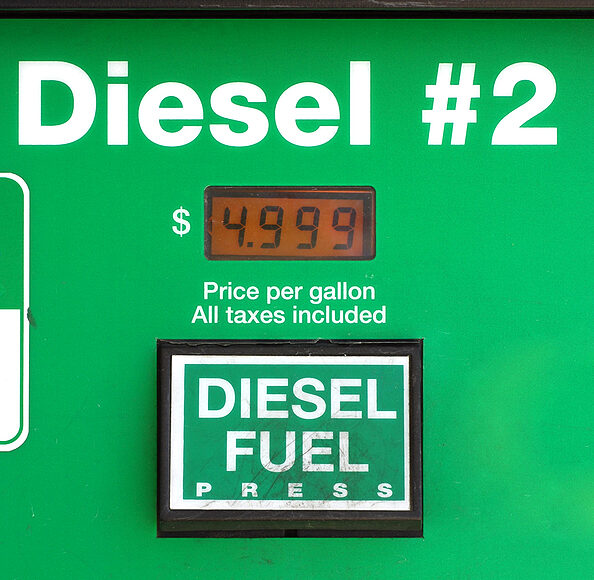As Winter Approaches, Some DelVal Residents Fear Diesel Shortage

Joe Biden’s Democratic Party may have dodged a political bullet on Tuesday, but it didn’t escape ongoing high diesel prices.
The Energy Information Administration reports supplies of heating oil and diesel are at their lowest in more than 70 years. The first week in October, the average price of home heating oil in Pennsylvania was $4.76 a gallon. By November 7 it was $5.86 a gallon. There are reports of delivery delays, price spikes, and even a shortage of trucks to deliver diesel. At least one supplier required a 72-hour notice for fuel delivery.
Delaware County resident Richard Pruett is concerned about food and other supplies.
“Without diesel, you do not have trucks,” said Pruett. “Without trucks, you do not have deliveries. Without deliveries, you do not have food. You do not have anything.”
Joe Ritter lives in Philadelphia where he drives both a truck and a bus. Ritter said his employers were having problems in the last year keeping trucks filled. One company had to find another supplier as a result.
“Tanks were not getting completely filled and the costs for diesel has also been an issue.”
How did we get here? Patrick De Haan of Gas Buddy said there are many reasons, beginning with Russia’s invasion of Ukraine. Russia produces a lot of heavy oil and products like diesel.
With Europe trying to wean itself from Russia’s energy production, the EU is having to rely on producers such as the United States. That has created a tremendous jump in demand for non-Russian oil.
“That, combined with a loss in refining capacity that the U.S. has experienced over the last few years, partially due to COVID, have made this a particularly challenging situation,” said De Haan. “Supply is very low amidst Europe trying to move away from Russia and because of a lack of refiners’ ability to produce as much diesel.”
Another factor is dropping temperatures in parts of the country causing an increase in heating oil consumption. Before Election Day had arrived, AccuWeather had already issued a blizzard warning extending from California to the Dakotas.
De Haan called the current situation a “perfect storm where prices are high, supply is low, and refineries don’t have much ability to produce more.”
Ritter said he believes the Biden administration could be doing more and accused the mainstream media of playing down the problem.
“If it were Trump, they’d be railing the [expletive] out of him,” Ritter said.
Pruett feels the same way, adding, “Leftist news channels are absolutely out of touch.” If you ask Pruett, they do not want to pay attention.
“It is very, very scary times that we’re headed into here,” he said.
If Biden is making oil production a priority, he is keeping it a secret. Over last weekend, Biden — who wants to fight man-made climate change by lowering emissions and greater use of alternative energy technologies — responded to a heckler by saying that there will be “no more drilling.”
The White House promptly tried to walk back the president’s statement, with Press Secretary Karine Jean Pierre telling a reporter Biden was asked about new drilling in the Arctic and there is “no shortage of opportunity for companies to produce oil here in the United States.”
Republicans responded with videos of both candidate and President Biden saying, “We’re going to end fossil fuels.” There was even a clip of CNN personality Dana Bash asking Biden in a debate if there would be any place for fossil fuels in a Biden administration.
Biden’s answer? “No, we would work it out, we would make sure it’s eliminated.”
That can only mean one thing, said Dan Kish of the Institute for Energy Research. Oil companies continue to operate in a hostile environment under this administration.
“Diesel runs our nation, transporting all of our agricultural and manufactured goods, and forms of diesel include jet fuel and kerosene,” said Kish. “The United States is a huge country and diesel is the most efficient way of moving it, so when it gets short in supply or higher in price, the cost of everything goes up.”
More refineries would help, but Kish said it won’t happen as long as the president continues his attacks on oil production and fossil fuels.
“No one will invest $10 billion in a refinery that will never get paid off, and that can take decades.”
Please follow DVJournal on social media: Twitter@DVJournal or Facebook.com/DelawareValleyJournal


